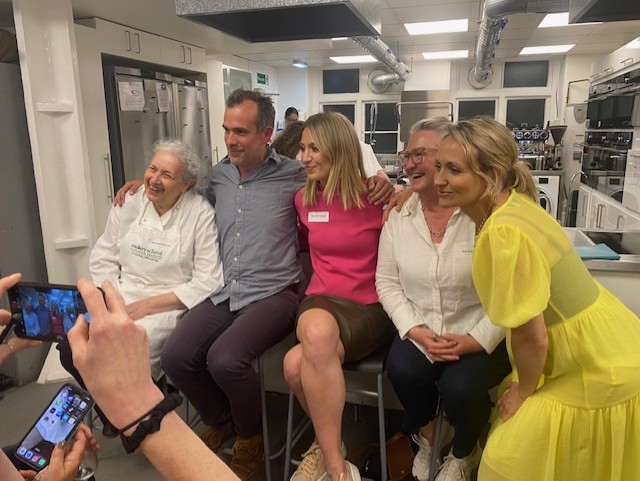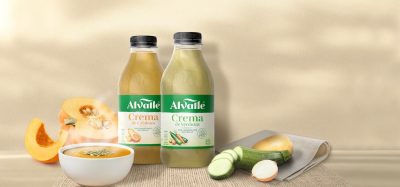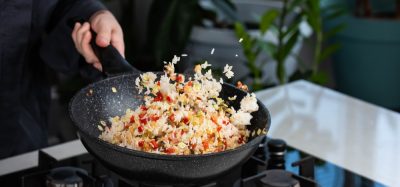Ultra-processed foods are harming our health — and they’re still being sold
Posted: 2 June 2025 | Louise Monaghan | No comments yet
We’ve all heard the warnings about ultra-processed foods, but following findings from a major international study, Louise Monaghan can keep quiet no longer.


Left to right: Rosalind Rathouse, Dr Chris van Tulleken, Dr Dolly van Tulleken, Sue Pritchard, Kate Quilton)
If a cheap, everyday product was linked to 18,000 premature deaths a year in the UK, we would expect to hear about it. We would want to know what it was, would probably stop buying it and would definitely think twice before giving it to our children. But this is the reality with ultra-processed foods (UPFs) and many people still don’t even know what they are.
A recent major international study has now confirmed what many public health experts have been warning us about for years: UPFs are linked to significantly higher risks of early death. Yet despite the UK being one of the biggest consumers of these products, there is still no national campaign to warn us of these risks.
While recreational drug-related deaths rightly make headlines and spark debate, there were ‘only’ 1,118 premature deaths linked to cocaine use in 2023 – far less than the tens of thousands of early deaths linked to UPFs. Yet these food products are still marketed and sold to children, disguised as convenient everyday choices. There are no accusations of ‘Nanny State’ because cocaine is illegal; so why this critical narrative when it comes to food? Why is it written off as ‘too woke’ or ‘nannying’ to warn people of the dangers of what they’re eating and offer real solutions? Shouldn’t we make every effort to raise awareness and facilitate easier access to real food?
Marketing tactics and social injustice
Unlike illegal drugs, the tragedy with UPFs is that many of their consumers consider them convenient, harmless foods. Some might be branded as ‘healthy’ or as just ‘a little treat’. But UPFs – which include many cereals, ready meals, snack bars and even yoghurts labelled as ‘light’ or ‘high protein’ – are packed with additives, emulsifiers and chemicals designed to extend shelf life, boost taste and keep us coming back for more.
While recreational drug-related deaths rightly make headlines and spark debate, there were ‘only’ 1,118 premature deaths linked to cocaine use in 2023 – far less than the tens of thousands of early deaths linked to UPFs.
Recently, the Cookery School at Little Portland Street in London, UK hosted an evening entitled Fight Fake Food to launch its #CookForVictory initiative, which started on 06 May. The panel was packed with industry experts: Rosalind Rathouse, Founder of the Cookery School; Sue Pritchard, Chief Executive of the Food, Farming & Countryside Commission; Dr Dolly van Tulleken, co-author of Nourishing Britain; Dr Chris van Tulleken, broadcaster and author of Ultra-Processed People; and it was chaired by Kate Quilton, producer of Channel 4’s Food Unwrapped. The message was clear: this is not just a public health crisis, it’s a social justice issue.
Dr Dolly van Tulleken’s Nourishing Britain report highlights that people in the UK’s most deprived communities receive the highest exposure to and impact from ultra-processed foods. These communities, that are heavily targeted by food manufacturers with aggressive marketing, often lack access to fresh, affordable alternatives and are left with limited choice. The result is poorer health outcomes from the start – not due to personal failure, but because the system is stacked against them.
In much of Europe, cooking from scratch is simply part of life – not a luxury. But here in the UK, it has become tangled in class and snobbery, often seen as a middle-class ‘hobby’. Big food brands have pushed the idea that cooking is elitist, expensive and time-consuming. This simply is not true, but it suits the big food companies’ profit margins to keep us hooked on convenience.
Dr Dolly van Tulleken’s Nourishing Britain report highlights that people in the UK’s most deprived communities receive the highest exposure to and impact from ultra-processed foods.
Research from the Food, Farming & Countryside Commission also shows that when the very real and heartbreaking question arises “what about people who genuinely can’t afford to eat or can’t afford the power to cook their food?” the answers often come from within communities. People step in. Neighbours help neighbours. Grassroots initiatives fill the gaps that policy has left wide open.
There are also now increased efforts to tackle the appalling levels of food waste in this country. But if we keep refusing to have these difficult conversations, because the cost feels too high or the problem too big, people won’t realise there are solutions.
Instead, big food corporations benefit from this silence, continuing to sell cheap, ultra-processed products because there’s a widely accepted belief that eating something, anything, is better than going hungry. But is this really the best we can do: filling people up with food that’s harming their health?
Rebuilding food skills and taking action
Cookery lessons need to be back on the curriculum but in a relevant and useful way. And it shouldn’t stop with children. We need adults cooking again too. It’s not about forcing anyone to eat kale or kimchi; it’s about understanding ingredients, knowing what to buy and realising that it can be very quick and easy. You can still have your cake and eat it, but this way you know and can pronounce all the ingredients, which makes it a much healthier treat.
Cookery lessons need to be back on the curriculum but in a relevant and useful way. And it shouldn’t stop with children. We need adults cooking again too.
So, what can we do? One of the first steps is to start cooking from scratch, when you will learn how quick, easy, affordable and fun it can be. Rosalind and the team at Cookery School are leading the way with their #CookForVictory initiative: 20 free, live online cooking classes running every weekday at 6–7pm. It is open to everyone, with no fancy kit or expensive ingredients required, just delivering practical skills to help people feed themselves well.
Dr Dolly van Tulleken also urged us to contact our local MPs, to question what they’re doing about this situation. Despite her admission that even her own MP doesn’t reply, we still have to try.
We cannot continue to fail people by keeping them in the dark. The knowledge to change lives, and save them, is already here. Now we need action.
Let’s cook. Let’s teach. Let’s tell the truth.
About the author


Louise Monaghan has over 30 years’ experience in hospitality. Louise trained at Westminster College and began her career at The Waterside Inn in Bray before moving to the kitchens of The Boulestin Restaurant in Covent Garden under chef Kevin Kennedy. Her front of house journey took her to Le Gavroche, working for Albert Roux under the guidance of the legendary Silvano Giraldin. She later worked for Albert Roux consultancy at The Point in New York State, The Grand Hotel Amsterdam, Boucherie Lamartine and Roux Lamartine in Covent Garden Market. As the bakery buyer for Selfridges Food Hall, she was responsible for selecting and sourcing a diverse range of high-quality products. She then played a key role in the running of her family-owned restaurants in Southwest London. Currently, she collaborates with restaurants and businesses to enhance their standards of customer service and contributes industry insights through reviews and articles, including reflections on her return to Le Gavroche last year, three decades later.
Related topics
Related organisations
Related regions
Related people
Dr Chris van Tulleken, Dr Dolly Van Tulleken, Rosalind Rathouse









